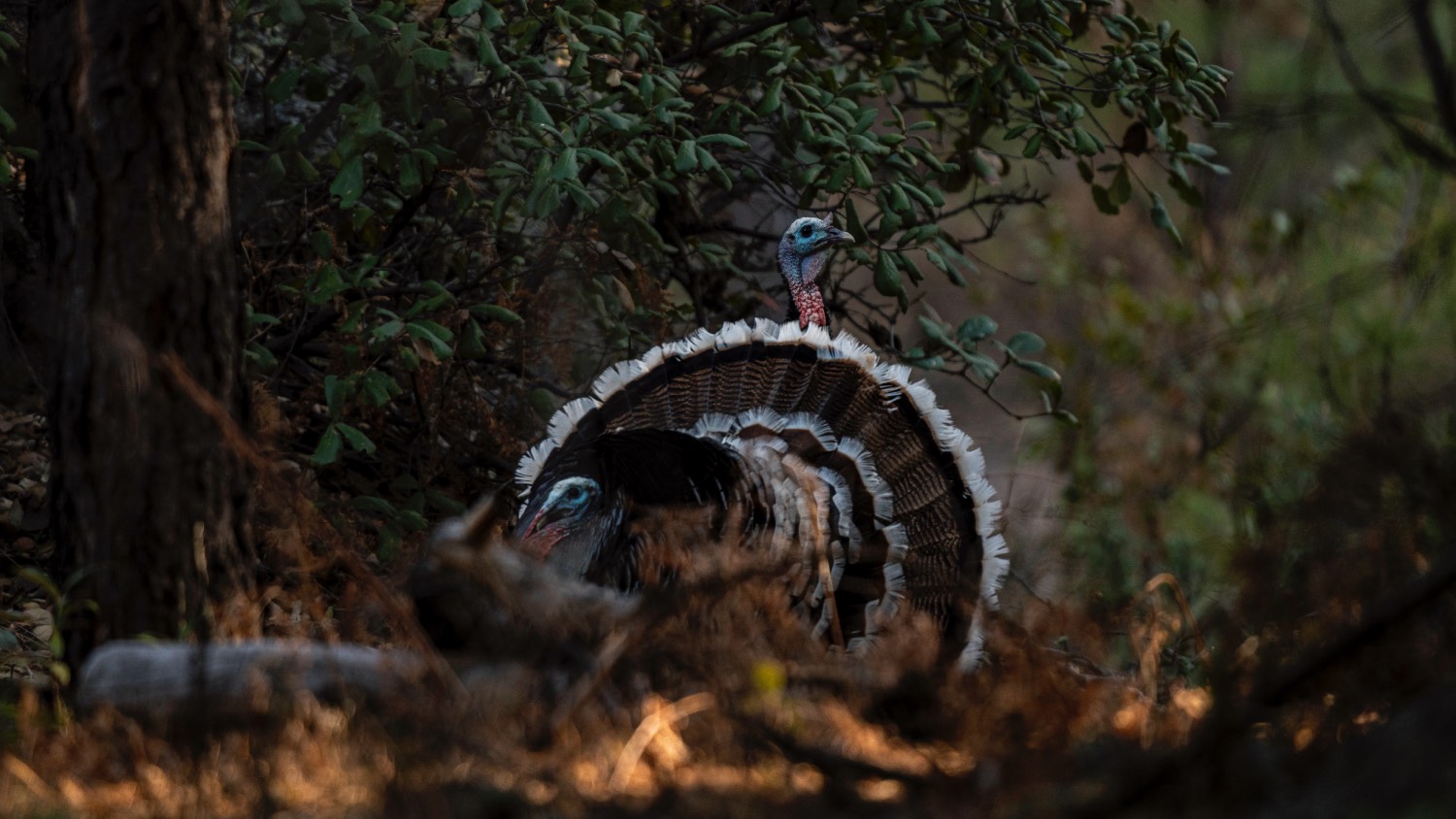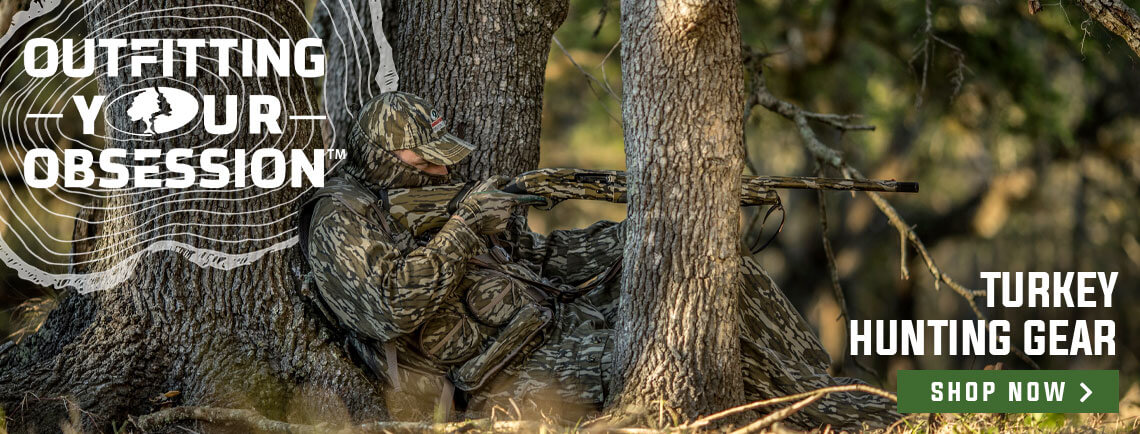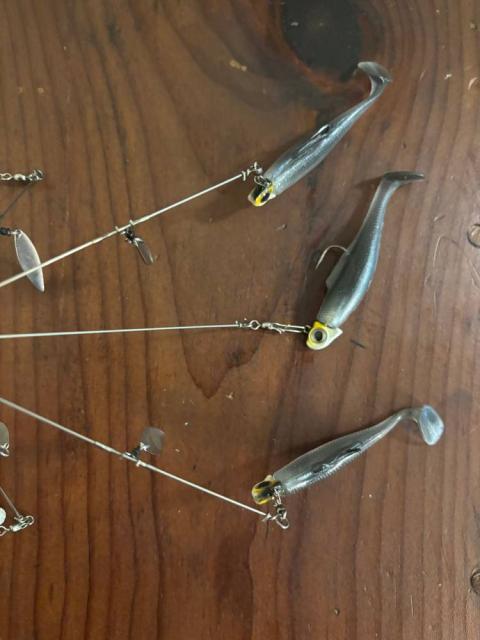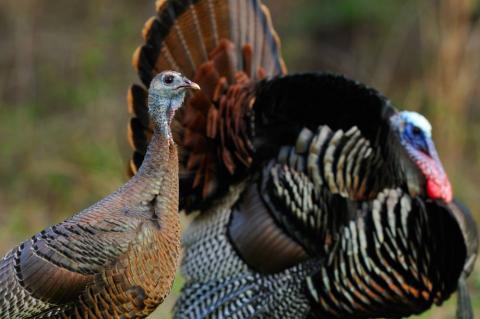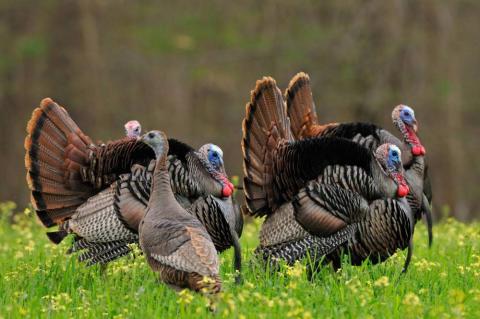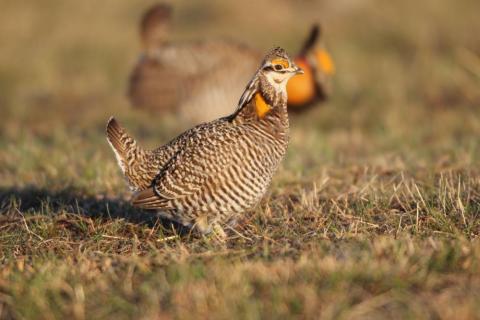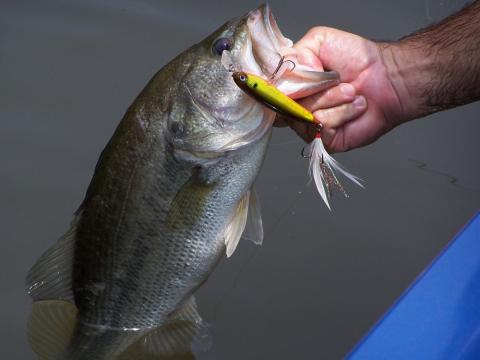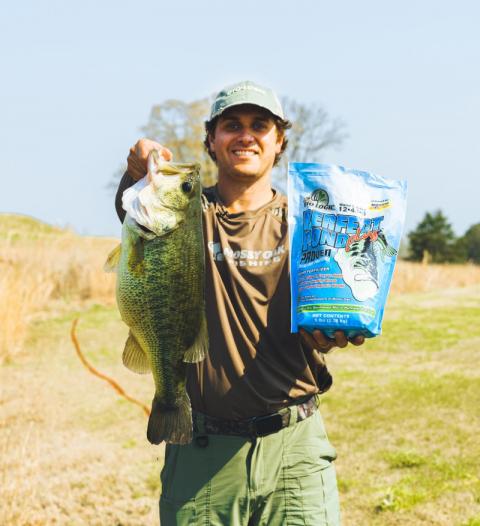Adam Moore
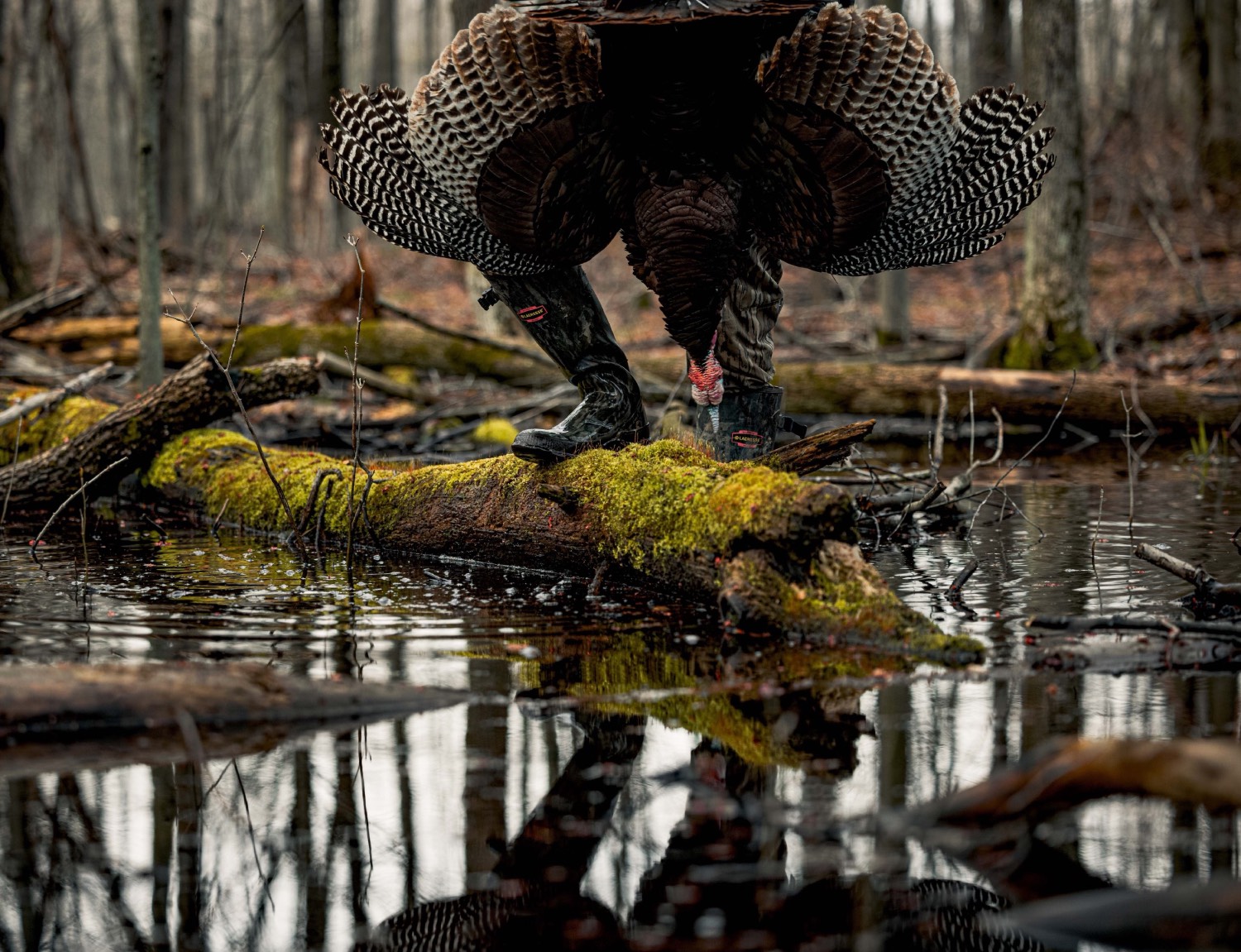
Photography by Stephen Spurlock
If you’re a turkey hunter, you’ve at least entertained the idea of completing a grand slam (bagging the four main subspecies of wild turkey in North America). Even more popular than the grand slam, is doing it in a single season. Sure, it would be a lot less hectic completing it over the course of several years, but most die-hards have an itch to get it done in one. While turkey hunting licenses and tags generally run cheaper than most other big game critters, tagging four different birds in multiple states will add up. Throw in the fact that you’ll visit different regions and you’ll find gas and lodgings eating up most of your hunting funds.
Stretching your grand slam over a few seasons might be your only option. If so, you won’t have to fork out as much cash up front. While this might give you more days to chase each species, you’ll probably find spend more in the long run. You have to find the strategy that works best for your situation. Here are a few tips to consider when planning a grand slam.
Go Public
If you’re trying go as cheap as possible, forget outfitters or guided hunts. A DIY trip will save you extra hunting funds and give you a greater sense of accomplishment. But you can expect stiff competition and crowded parking lots. Of course, if you have friends or family with access to private ground in these states, that might be your best bet. Otherwise, finding birds and navigating the pressure will be the hardest part.
Start with Your Home State
Your home state (theoretically) should be the cheapest and most convenient state for you to hunt, especially if you have access to primo turkey hunting grounds. Even if you don’t, you’re still within easy driving distance of hunting opportunities and your resident tag will be cheaper than any non-resident tag.
Hunt Neighboring States
To cut down on fuel costs and save time, hunt states that border one another and where different species’ ranges overlap. For instance, to bag your Merriam and Rio turkeys, you could plan to hunt Merriam’s in Nebraska and then head south to tag a Rio in Kansas or Oklahoma. You don’t have a choice when it comes to Osceolas. It’s south Florida or bust. And if you live in a state where you can tag an Eastern, there’s your grand slam.
Photography by Stephen Spurlock
Pitch a Tent
This isn’t for everyone, but if you really want to cut costs, camp instead of crashing at a nearby hotel. A lot of public lands have free or dirt-cheap camping fees. Even if the public ground you’re hunting doesn’t allow camping, look for nearby campgrounds. They’ll be cheap too.
Skip the Local Fare
In the words of Gene Nunnery, author of The Old Pro Turkey Hunter, you’re here to hunt, not eat. I have a buddy who complains about how expensive it is to hunt out of state. It’s never the tags and licenses he’s talking about but the food and lodgings that add up. If you’re spending $15 per night to eat a hot meal, then yea, it can get expensive. You should spend as much time as possible hunting, and that means during meal times. Pack granola bars, jerky, fruit, etc., or whatever you can fit in your turkey vest. For dinner, bring a cooler with prepped meals you can heat over an open fire or camp stove. Save that diner meal for after you notch your tag. It’ll taste even better.
Example Costs
The bulk of your costs will come from traveling to different regions, but the reasonable price of turkey tags should make that easier to stomach. Since you’ll be burning a ton of gas, consider driving your car or borrowing one from a family member or friend. I drive a Subaru Forester during turkey season. With strategic packing, I can even fold the seats down and sleep in it. Not to mention, it gets twice the gas mileage as most trucks.
Here’s a hypothetical scenario and breakdown of what you would spend as a resident of Oklahoma with non-resident tags, stamps, and licenses in Nebraska, Wisconsin, and Florida.
Oklahoma Resident—$63
Nebraska NR—$153
Wisconsin NR—$68.25
Florida NR—$171.50
Total= $455.75
Compared to non-resident tags for other big game, $455.75 to hunt four different species in four different states is a steal. Of course, this doesn’t include travel costs and food, so you’ll have to budget for that, but this will give you an idea of what you can expect to spend.

